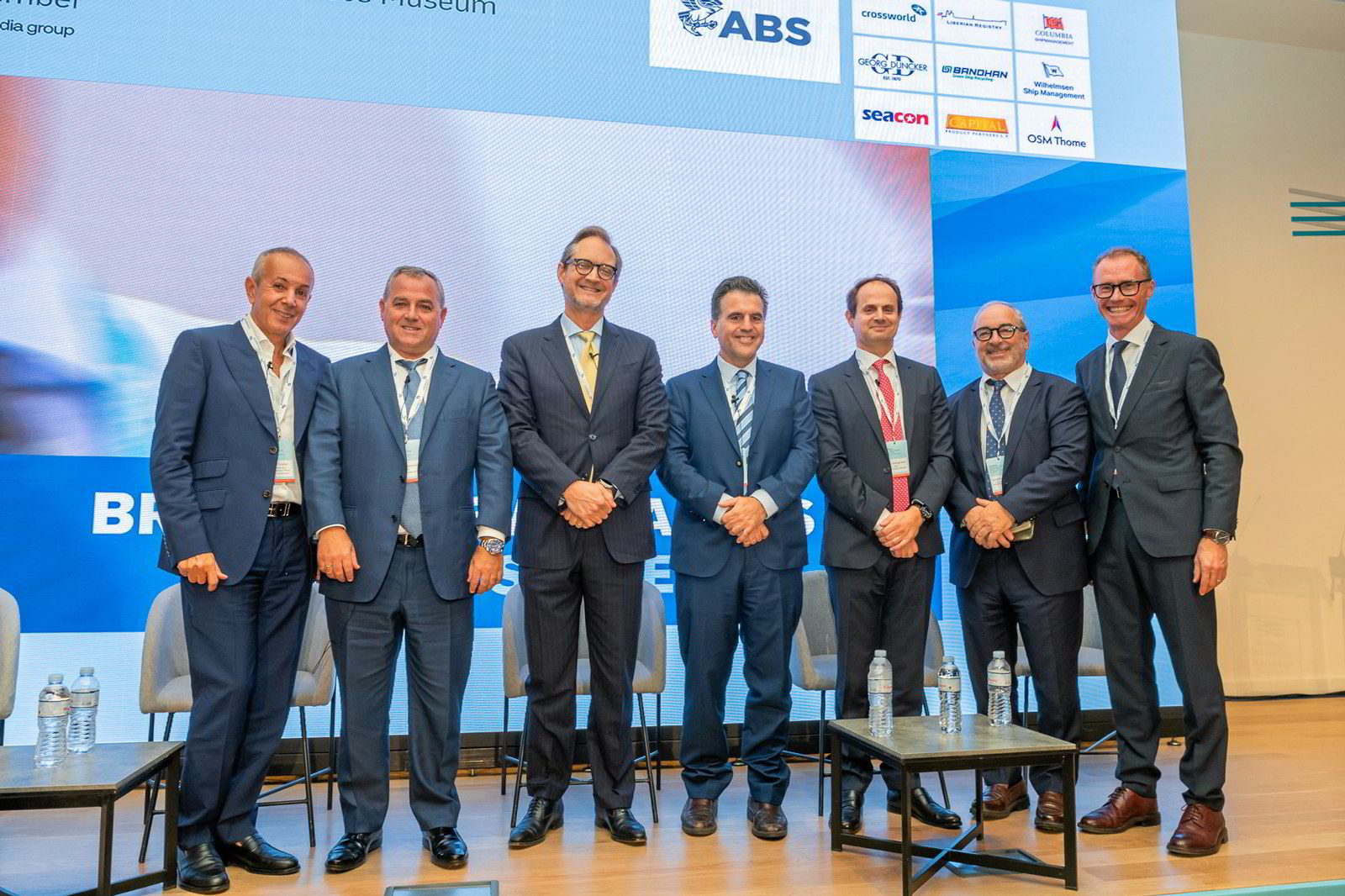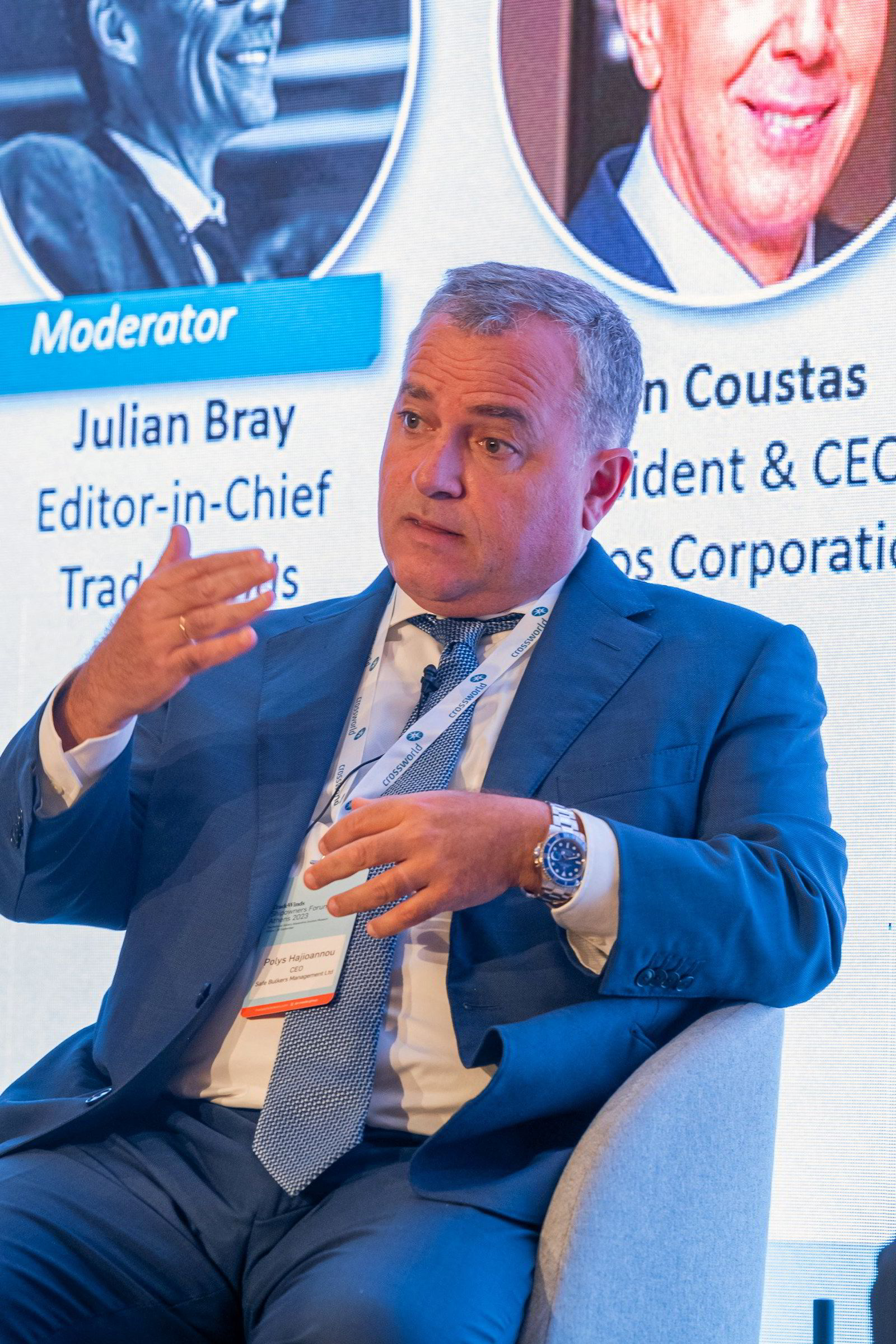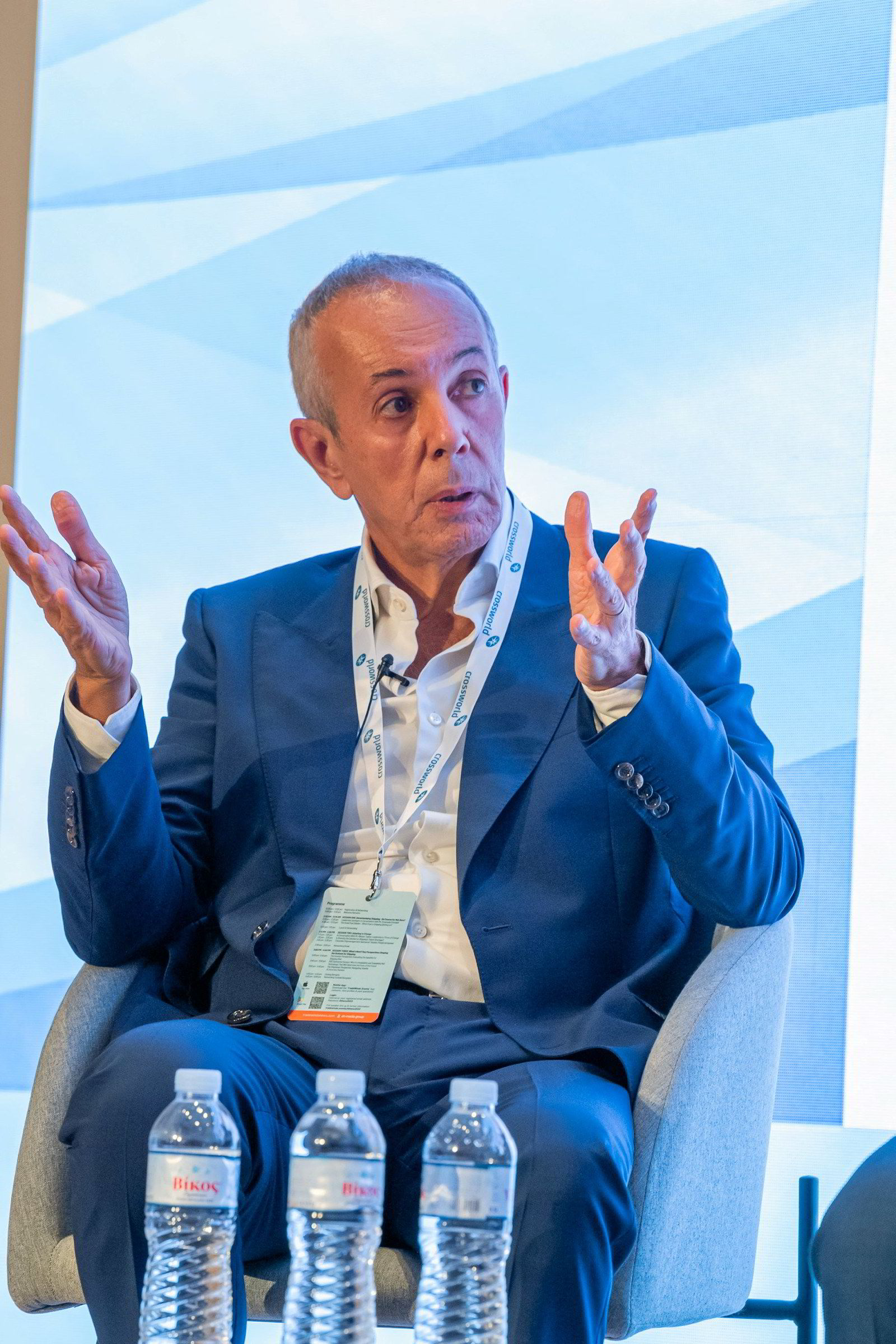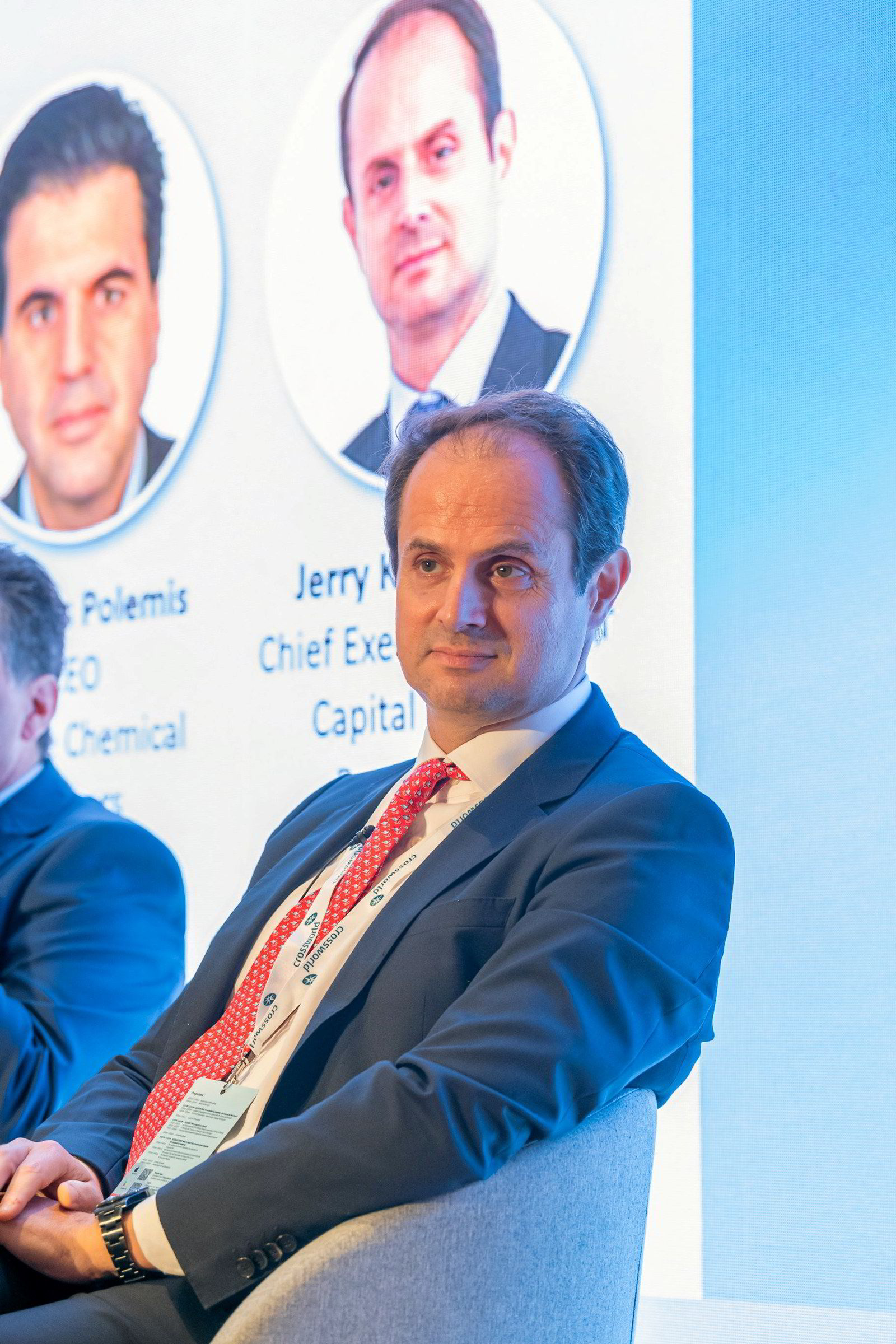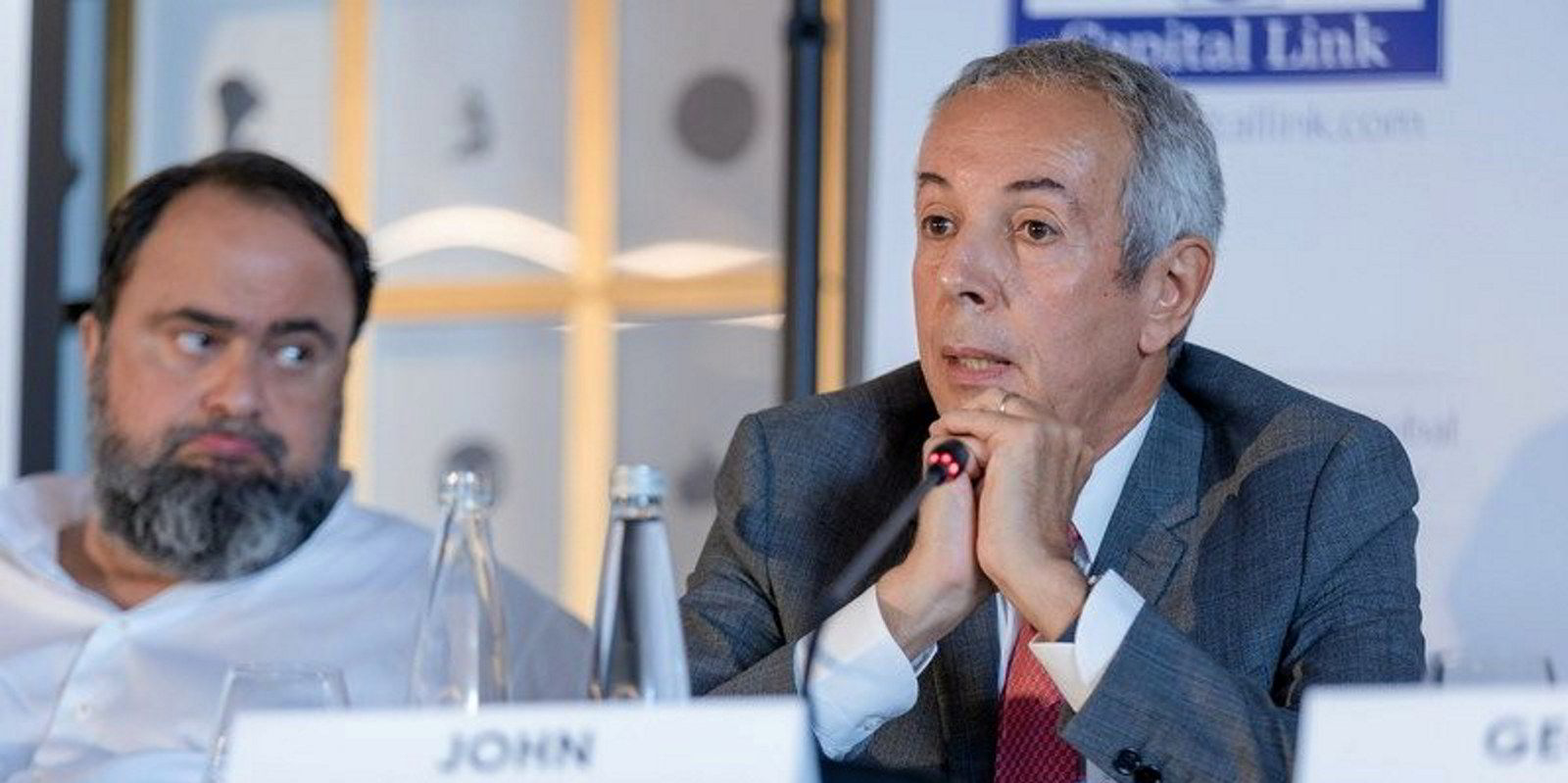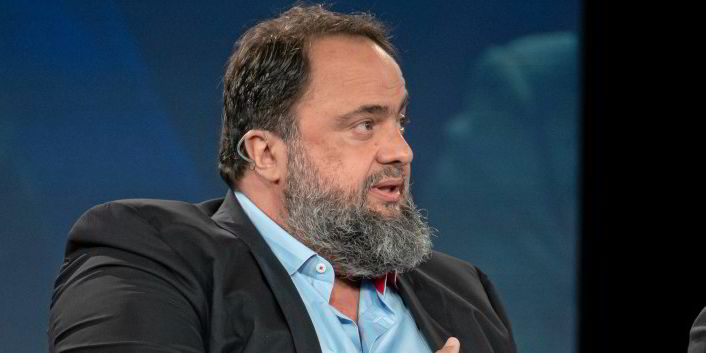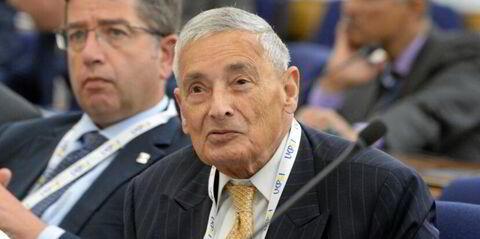Persistently rising prices and interest rates worldwide are threatening the global economic outlook and could spell trouble for shipping.
This was the view expressed on Tuesday by Polys Hajioannou, principal and chief executive of Safe Bulkers, at the TradeWinds Shipowners Forum in Athens.
“I was expecting since spring to start seeing some time in 2023 a reduction or peak of interest rates but we don’t see that coming — instead we see that they stay at high levels and this will continue, maybe for another year or so,” he told an audience of more than 300 participants.
“This is for me the biggest risk to shipping in the years to come because this will depress the GDP of many economies,” Hajioannou continued, adding a somewhat gloomy prediction. “I don’t think we’re entering a good phase for shipping in the next few years, we have to be very careful.”
Despite a marked improvement in bulker freight markets in recent weeks, companies that have been recently active in the sector warned players not to get ahead of themselves.
“The general supply-demand is favourable, but I don’t expect any boom in the short term because China will take a lot of time to recover,” said John Coustas, chief executive and founder of Danaos, on the same panel.
Danaos, an owner of about 70 container ships, started expanding in bulkers in July with a $103m acquisition of five capesizes.
Defiant Danaos
However, the company has probably acquired at least one more such vessel since, to judge from Coustas’ statement on the panel that his company has spent about $130m on bulkers so far.
This very likely includes Sinokor Maritime’s 175,900-dwt West Trader (built 2009), which shipping sources linked to Danaos earlier this week in an $18.8m deal.
Speaking at the TradeWinds event on Tuesday, Coustas defended his decision to expand in bulkers.
“We are invested enough in containers ... we decided it’s time to diversify our source of income,” he said, adding that one builds up a fleet in a falling market, not a rising one.
Coustas also dismissed criticism about the move by some analysts and shareholders, who would rather see the company spend its extra cash on dividends or share buybacks.
While pointing out that the company is already rewarding shareholders through such measures, he added that some of the cash has to be withheld to fund growth.
“There’s no way I can do a share buyback for $130m without pushing the share price up 50% — it doesn’t make sense, it’s as simple as that,” he said.
Capital exercise
Other major shipping players expressing their views on developments included Jerry Kalogiratos, the chief executive of US-listed Capital Product Partners.
The sponsor of the company, Evangelos Marinakis’ Capital Group, recently placed groundbreaking newbuilding orders for CO2 and ammonia carriers.
The move was motivated by the company’s bet to serve new trades created by the energy transition and green economy.
“There’s going to be a road for many different fuels and they are going to be specific vessels and trade routes,” Kalogiratos said.
Capital Product Partners has also heavily invested in LNG carriers and LNG dual-fuelled tanker newbuildings.
The company calculated that on currently available energy efficiency measures, fuel options and carbon credits, an LNG-fuelled suezmax could repay the additional investment required for its construction within a couple of years, Kalogiratos revealed.
Andrian “Andy” Dacy, the chief executive of JP Morgan Asset Management’s Global Transport Group, believes the industry must keep an open mind for more radical decarbonisation solutions.
“Where I get a little excited about is what the nuclear equation can mean for shipping,” he said during the same panel.
